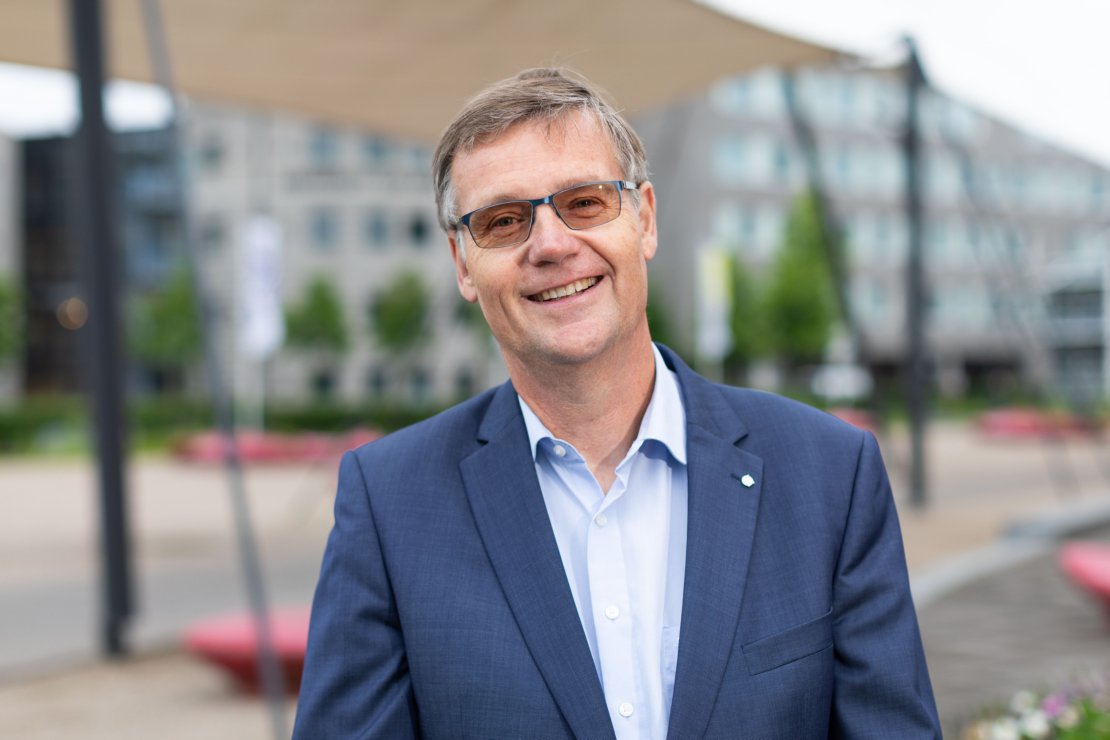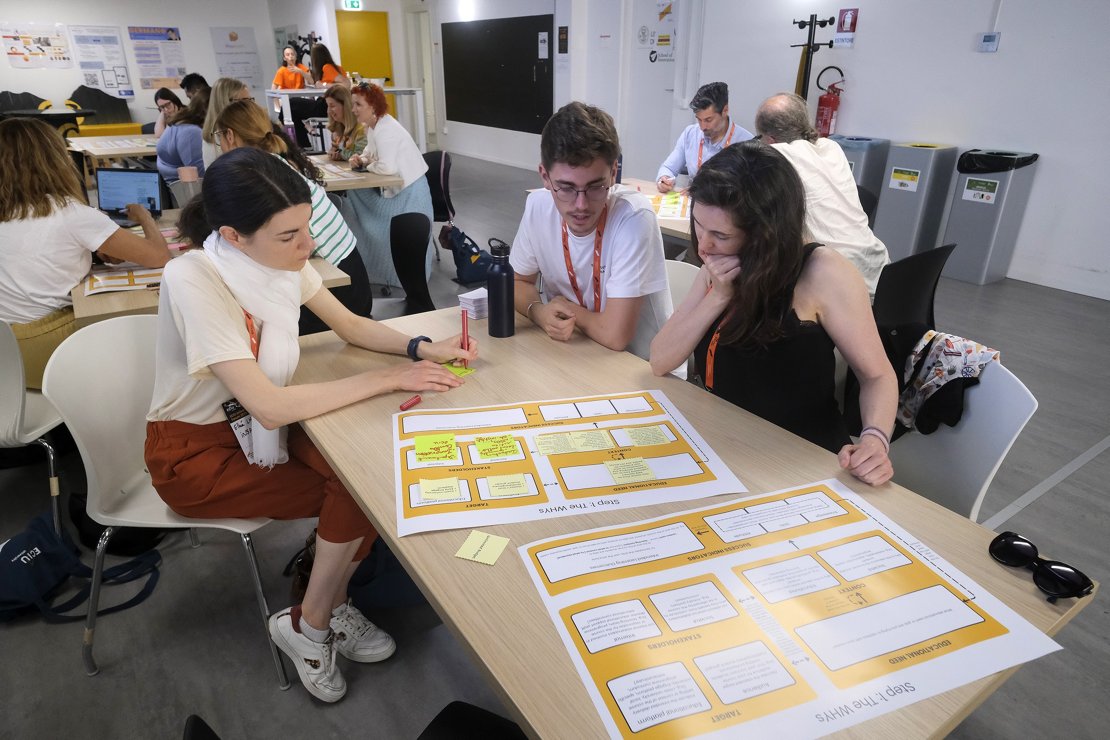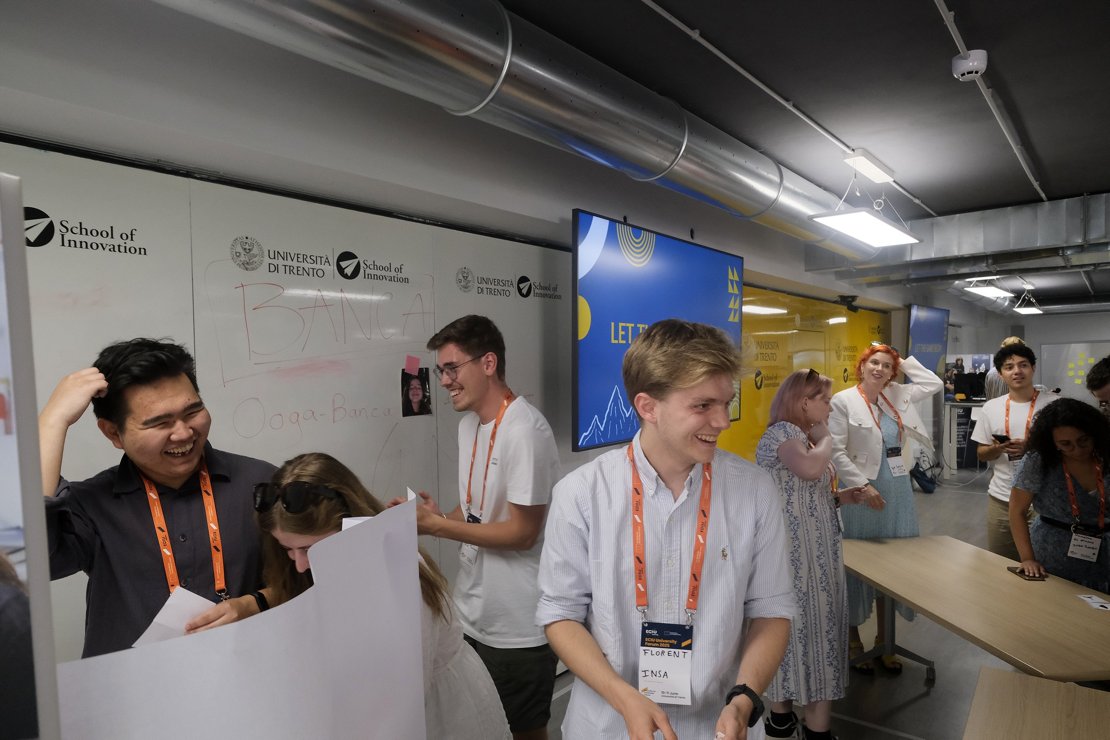'A reappraisal of what ECIU does'
ECIU University is currently preparing for the next phase in the European Universities Initiative. In 2027, the EU will publish a new call for proposals for existing alliances. The University of Twente has once again been asked to coordinate things. 'We are taking this seriously into consideration,' says UT vice-chancellor and ECIU board member, Tom Veldkamp.
A new wind is blowing within the University of Twente when it comes to ECIU University. The vice-chancellor also notices this. 'There is a change going on', says Veldkamp. 'Several things are coming together. This initiative is here to stay. In the upcoming years, the European Commission will continue to support financial collaborations – alliances – between European higher education institutions. ECIU University is such an alliance, and we are noticing increasing interest.' According to Veldkamp, this is partly due to people realising that an increase in funding is not to be expected from the Dutch government. 'If you want to continue to develop, this cannot be done without cooperation. In addition, our Faculty deans are enthusiastic. People see the potential of the initiative and that affects the organisation positively.'

According to Veldkamp, the creation of a ‘European Degree’ is also taking further shape: a new type of diploma that is to be recognised throughout the European Union. This Degree will constitute a crucial factor in lending the cooperation between European educational institutions more prestige. Veldkamp: 'The diploma is not a done deal yet, but serious steps are being taken to achieve this. It is almost certain that the Degree will come into existence'. (article continues below photo)

Impression of the Forum 2025 in Trento, Italy.
According to the vice-chancellor, one important advantage is the fact that the European Commission identifies challenge-based learning and micro-credentials as promising concepts for tackling future societal issues. 'According to the Commission, these concepts fit in well with the principle of lifelong learning.' He continues: 'Collaboration with the business community and external parties, as well as finding and working on societal challenges are already well embedded within our University, but at many other universities this is not the case.’
As a result, ECIU University is now seen as an example within Europe. 'We are leading the way. We are coordinating the FOR-EU4ALL project, in which the sixty-five current European university alliances are working together.' About the role of the University of Twente Veldkamp says: 'Within the consortium, we as UT take a leading position. This is partly because it is legally founded in the Netherlands, but also because we are very well represented in terms of content. Several employees are active at the central ECIU level, I myself am involved in the day-to-day management, and thanks to having an office in Brussels, we are constantly kept up-to-date about the latest European developments.'
'We help determine which way the train runs'
According to the vice-chancellor, these developments offer opportunities that allow UT not only to follow, but also contribute actively to setting the European agenda. 'It is clear that we need to be join in, but right we now help determine which way the train runs and that enables us to align regional ambitions and our own ambitions.'
Although the project is progressing well within the EU and the consortium, there is still ground to be gained within the University of Twente. 'Still, we have already advanced greatly in the past two years. This was made evident by the positive feedback that the University Council sent recently. We have also been asked by the strategic council to coordinate the next phase, which we are giving serious thought. In short, there is a reappraisal at UT of what ECIU does.'
Veldkamp understands quite well that ECIU having its own physical location on campus may contribute to this reappraisal. 'Having a permanent home base is not a bad idea. This applies to other parties within UT as well, by the way. The use of space is always an important point of consideration, so we are investigating what possibilities we have in order to realise any wishes.' (article continues below photo)

Impression of the Forum 2025 in Trento, Italy.
As far as the number of participating students is concerned, we are in line, the vice-chancellor says. 'ECIU University is not a one-size-fits-all concept. Not every student has to participate. With decent PR, lots of conversations and making the benefits visible, eventually the initiative will grow exponentially, although of course it is difficult to predict when that will have an effect.'
As a member of the day-to-day ECIU board, Veldkamp hopes for a European dimension within Dutch universities. 'Recognising programmes and guaranteeing the quality of education is an important thing, but why can this not be done at a European level? Then we will be able to recognise each other's programmes much more easily. It would be a good step forward.'
